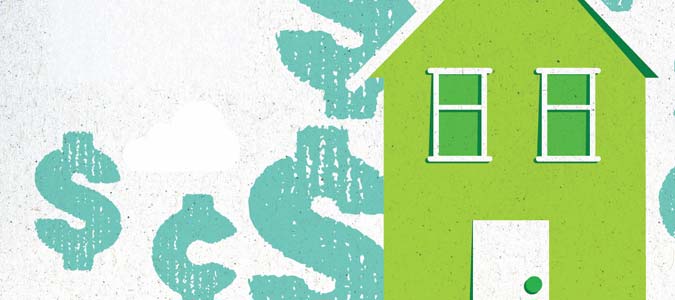Many first time home buyers are so eager to join the “home ownership club” that they do not consider the true costs of home ownership. The cost of home ownership is more than just the amount you pay each month for your mortgage.
Most people just stop to consider their monthly mortgage payments. But there are other costs that are associated with home ownership. It is important for owners to factor in these costs when deciding what home they want to purchase.
How much will your new home cost you each month? What type of expenses should first-time homeowners consider when buying a home? There are quite a few things to consider.
* The 1/3 rule of thumb. To comfortably afford your home, your mortgage should not be more than 33% or one-third of your income. Some experts recommend keeping that amount to about 25%,
* Factor in incidental costs. In most cases, you will need money for a down payment. Depending upon the type of mortgage, you may need anywhere from 5 percent to 15 percent of the purchase price.
You will probably also need to pay for the home inspection. These inspections can start about $300 and up. If you buy a rural property, also include a septic inspection for about the same cost or more.
* Closing costs. Closing costs will run anywhere from 1% to 2% of the cost of your home.
* Taxes.
Depending on where you live, you may need to pay a transfer tax or a home occupancy tax. This can vary from several hundred dollars to several thousand dollars depending on your community.
* Home Owner Association fees.
If you are purchasing a condominium, you may need to pay condominium fees. In some areas, homeowners must pay homeowner association fees each month.
* Incidental fees.
Most homeowners want to paint or buy new curtains for their home. Some homeowners may go a little bit further, and they may decide to put down new flooring or purchase furniture. Remember to include these fees in your budget.
* Ongoing expenses.
There are other expenses including home maintenance expenses and taxes to consider. Also, you should consider the costs of utilities too. The bigger the house, the greater the costs. A larger home will cost more to heat or to cool than a smaller house.
* Changes in interest rates.
Depending upon your mortgage, your interest rates may not stay the same for the life of your mortgage. When interest rates rise, your mortgage rates will also rise. You should factor this into your budget when deciding if you can afford a home.
* Insurance fees.
You will also need homeowner’s insurance to cover your property in the case of some unexpected events. Depending on where you live, you may also need to purchase a specialized type of home owner’s insurance. For example, you may need to purchase flood insurance or hurricane insurance in addition to your regular insurance policy.
Insurance policies must be paid to take effect when you move into your new home. If you are building a home, you will need insurance even if you just have a lot.
Many experts also recommend having a savings account for emergencies or other expenses that may arise. It is important to not cut yourself short. You want a financial cushion available just in case of an emergency. For example, if your air conditioning system or furnace should go out, you will need the money to fix the problem. You should set aside $200 each month to build a financial cushion. This cushion can be used for emergencies or routine maintenance.
All of these expenses may seem a little bit overwhelming, especially if you have never owned a home before. One good way to get used to paying a mortgage and expenses is to start putting aside the difference between your rent and your mortgage in a savings account.
If you are paying $1000 for rent and you are looking at a $2000 mortgage payment, put the $1000 difference in a savings account. Not only will you get used to carrying the larger mortgage, but you will also be putting money aside to pay for incidental moving expenses.
Says one prospective homeowner, “I was worried when we decided to buy our first home. But because we had been putting money aside each month, we knew that we could afford the higher monthly payment. Instead of panicking, we knew we would be okay.”

